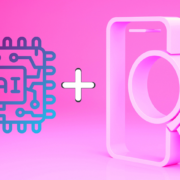Road trips are a quintessential part of the American experience, offering a sense of freedom and adventure that is hard to match. However, as gas prices fluctuate, achieving fuel efficiency becomes increasingly important for travelers. Maximizing miles per gallon (MPG) not only saves you money but also reduces your environmental footprint. In this article, we will delve into simple yet effective ways to get the most out of every gallon of gas on your next road trip.
Table of Contents
Plan Your Route Wisely
Before you hit the road, take some time to plan your route carefully. Utilize GPS or mapping software to find the most direct path to your destination. A straighter route with fewer stops and starts will help you maintain a constant speed, which is more fuel-efficient. Moreover, consider the terrain. A route with fewer hills and curves allows your vehicle to run more smoothly, leading to better gas mileage.
Consider Your Vehicle’s Fuel Efficiency
If you’re in the market for a new vehicle before your trip, you might spot a new Ford for sale that boasts excellent fuel efficiency. Different cars have varying fuel consumption rates, so choose one that is known for good MPG if possible.
If you’re sticking with your current vehicle, ensure that it is in top condition. Simple maintenance tasks like inflating your tires to the proper pressure, changing your air filter, and keeping your engine well-tuned can make a significant difference in fuel efficiency.
Drive Mindfully
Your driving habits have a substantial impact on your vehicle’s fuel consumption. For instance, accelerating quickly and braking hard can be detrimental to your gas mileage. Aim to maintain a steady speed and make use of cruise control when possible. When you’re on the highway, driving at a speed of around 55-65 mph usually offers the best fuel efficiency. Speeding not only decreases your MPG but also puts you at risk for accidents and traffic tickets.
Minimize Idle Time
Idling consumes gas without getting you any closer to your destination. If you find yourself stuck in a long queue or waiting for an extended period, it’s better to turn off the engine. Modern cars are designed to use less fuel when you restart them compared to leaving them idle for a long time.
Limit the Use of Air Conditioning
Though it might be tempting to keep the air conditioning on full blast, doing so can eat up fuel. Use the car’s ventilation system to circulate air or roll down the windows when it’s not too hot outside. If you must use the air conditioning, aim to keep it at a moderate level.
Pack Smartly
Believe it or not, the way you pack your vehicle can influence your fuel efficiency. Excessive weight or poorly distributed load can reduce MPG. Keep your cargo light and try to place heavier items at the bottom and towards the center of the vehicle. Also, if you have a roof rack or cargo box, remember that they can create drag and reduce fuel efficiency. Remove them when they’re not in use.
Start Planning Your Trip
Maximizing your vehicle’s miles per gallon during a road trip involves a combination of proper planning, mindful driving, and smart packing. The open road awaits, so why not make the most of every gallon?






Comments